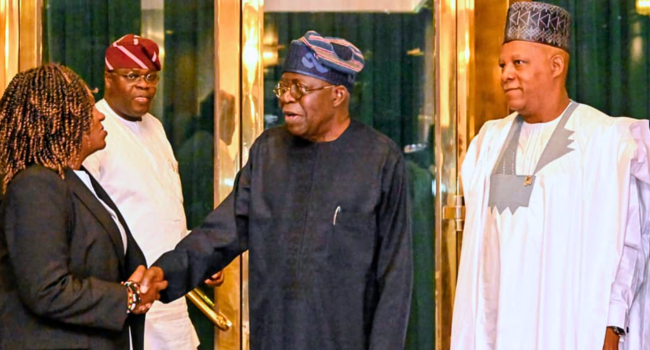Nigeria has reaffirmed its commitment to strengthening international partnerships and adapting its foreign relations to evolving global trends in trade, politics, and culture. President Bola Tinubu made this known during a meeting with Colombian Vice President Francia Márquez at the State House in Abuja. The Colombian delegation included senior government, business, and diplomatic officials.
The meeting highlighted the need for new partnerships in the face of global economic volatility and shifting international policies. President Tinubu expressed his support for enhancing business opportunities between Nigeria and Colombia, particularly in aviation and consular matters. He noted that agreements recently signed with Brazil could be replicated with Colombia, and the Ministry of Foreign Affairs would accelerate this process.
Vice President Márquez identified areas of focus for stronger bilateral ties, including aviation, visas, political consultations, cultural exchanges, and trade. She emphasized the historical connection between the two nations, noting that her visit would lay the foundation for a long-lasting relationship built on cultural heritage and social inclusion. As the first black Vice President of Colombia, Márquez expressed her delight in leading the visit to the land of her ancestors, who were taken away from Africa centuries ago.
The meeting also explored opportunities for Nigerian and Colombian business leaders to collaborate, particularly in the oil and gas sector and agriculture. President Tinubu stressed that Nigeria’s youthful and growing population provides a robust market and skilled workforce, making it an attractive destination for investment. Vice President Kashim Shettima described the visit as a chance to rekindle ancestral connections disrupted by slavery and colonialism, and noted that political and cultural similarities between both nations would help foster healthy economic collaboration.
The visit is expected to strengthen ties between Nigeria and Colombia, as well as between Africa and Latin America. The African Union’s stance on restoration and reparation is seen as a key factor in further strengthening these ties. With the meeting, Nigeria has taken a significant step towards expanding its international partnerships and adapting to evolving global trends. The country’s leadership role in Africa and its growing economy make it an important player in regional and global affairs.
